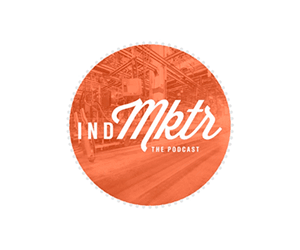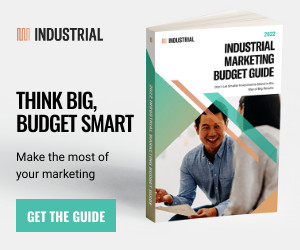B2B marketing tactics have constantly evolved to better reflect market behavior. In the past year, businesses have had to reconsider popular marketing practices to keep up with massive changes in the global economy caused by the pandemic. The pandemic has forced businesses to innovate swiftly and persistently to manage the devastating effects the health crisis had on many enterprises.
For the most part, traditional B2B marketing tactics remain relevant, but there is a greater focus on buyer education, B2B sales enablement, and empowerment. And with the pandemic, the call for social change, and major changes in the B2B ecosystem over the past year, marketers are counting on emerging trends to carry them through to the next stage.
Keep reading to learn more about B2B marketing tactics and best practices to grow your business and stay competitive in your industry.
Retention Marketing
Many businesses lost their biggest client over the past year, mainly because of the pandemic or because the client lost funding. Other reasons include a change of direction or goals, a change in leadership, or a failed business model. While marketers typically stress the importance of acquiring new customers, it may be more beneficial to focus on maintaining customer relationships by investing in retention marketing.
Retention marketing can increase both the amount of time customers choose to buy products or services from you, as well as the amount of money they spend. By upselling and cross-selling, you can sell more to existing clients while increasing your profit margin.
Here are some of the best ways to retain B2B customers:
- Create an engaging onboarding program that allows you to show your brand’s overall value along with all the levels of customer service.
- Make use of customer feedback to enhance the user experience.
- Analyze customer behavior to discover opportunities to upsell and cross-sell your products and services.
- Reward customer loyalty by offering exclusive access, discounts, and perks.
SEO-Driven Content Marketing
If you aren’t already doing it, an effective B2B marketing tactic is to create relevant and effective content that drives quality traffic to your website. B2B search engine optimization (SEO) is a long-term marketing approach used by B2B businesses to improve their search engine rankings, particularly on Google. In contrast to B2C SEO, B2B SEO focuses on keywords that primary decision-makers use to search for information that will help them perform tasks related to work.
Here are some pointers for developing a successful B2B SEO strategy:
- Build your decision-maker persona with details describing who they are, the industry they work in, their job title, who they report to, and more.
- Conduct keyword research to help in the development of your client persona and content strategy.
- Optimize your website and pages with unique, long-form content and strategic keyword usage.
- Create a valuable B2B blog that helps establish you as a credible resource in your niche.
Interactive Content
Businesses must make their content more interactive to boost customer interactions and engagement. Interactive content helps increase your customers’ attention span and creates an intellectual and emotional bond between them and your brand. By encouraging site visitors to engage more with your content, you have an opportunity to learn more about your customers—what they prefer to buy, what they look for in products and services, and more.
The following are the main types of interactive content B2B marketing tactics you can integrate into your program:
- eBooks – eBooks with clickable links, audio narration, and other features add to the reading experience.
- Quizzes – Interactive tests with relevant questions and helpful answers show your industry expertise.
- Calculators – ROI and pricing calculators provide your clients with immediate, customized, and helpful information.
- Infographics – Scrolling effects, clickable highlighting options, and other infographics provide visual stimulation.
- Simulation Games – Simulations let your customers understand the value of your product or service in their daily business activities.
Artificial Intelligence
B2B marketers benefit from artificial intelligence (AI) because it provides important insights that help them create personalized content and optimize for SEO, among other things. AI can also be utilized for other activities like analyzing data and enhancing automated features to generate high-quality leads and conversions.
Marketing automation is the process of utilizing software to assist humans in performing simple and repetitive tasks. This still requires designing routines around specific scenarios and manually optimizing data. AI, on the other hand, uses data to simulate human intelligence and reasoning to make predictions, recommend optimizations, and apply these dynamically.
When you combine marketing automation and artificial intelligence, you get the best of both worlds—you get the time-saving efficiency of automation, along with the capacity to recommend and alter automation based on data-driven insights. For example, you can use AI tools within your email automation platform to write tailored subject lines or sections of emails.
Chatbots are another AI tool that is being utilized by many businesses to answer client questions and assist users in navigating a company website. Chatbots can help you provide your clients with a better online experience. As a result of this digital innovation, businesses have seen an increase in customer interaction, engagement, and satisfaction.
Applying These B2B Marketing Tactics to Your Business
As the B2B industry continues to evolve and change, businesses are recognizing the need to focus on existing customers, as well as combine content and technology to improve their marketing and sales processes. Consider tailoring some of these B2B marketing tactics to your business to drive business growth.




